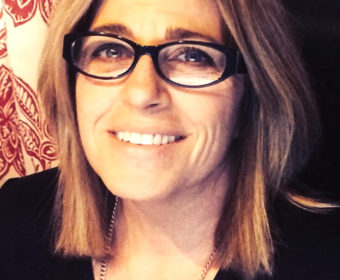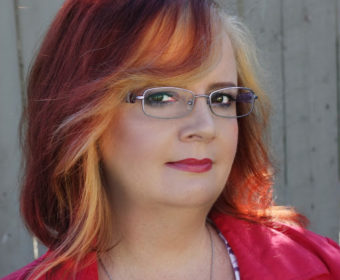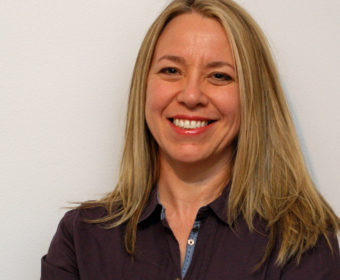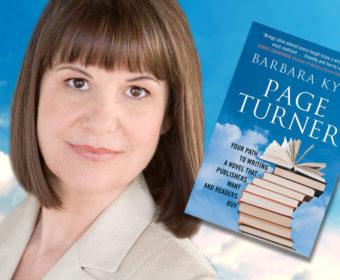Your cart is currently empty!

What to Expect When You’re Expecting a Novel ~ Part 1
Insight from the Pros Regarding Editing
By MJ Moores
You’ve done it! Your manuscript is written, self-edited, beta read, peer-critiqued, and professionally edited. It’s time to query agents and/or publishing houses.
But…
Is your book “really” perfect?
Is it realistic to expect that an agent or acquisitions editor will accept your manuscript “as is” and send it straight to print?
If you are offered a contract, does that mean your work is done?
To answer these questions, I went straight to the professionals to find out what exactly authors should be aware of.
THE EDITING & REVISION PROCESS after YOUR BOOK’S “ACCEPTED”
After interviewing four industry professionals, my suspicions were confirmed… nobody’s perfect.
But don’t take my word for it. Literary Agent Stacey Donaghy (Donaghy Literary Group), Publisher Cheryl Kaye Tardif (Imajin Books), Freelance Editor (and prior Senior Editor for Harlequin) Wanda Ottewell, and Bestselling Author and Mentor Barbara Kyle (of the acclaimed Thornleigh Saga) give their professional opinions on “post-acceptance” editing/revisions, and advice on what to expect when you’re expecting your novel to get published.
When asked what insights they could provide about the editing processes “yet to come,” these experienced professionals all gave me a variation of the same answer!
More editing will be required—just to varying degrees.
S. Donaghy: When signing new authors, our team is clear from the get-go that we edit projects prior to submitting. Whether this means stylistic, rewrites, or substantive editing we want to be sure before signing a writer that they a) understand this is a process that will take place, and b) they are open to edits and making changes as suggested. This also helps us understand if the writer will be able to work with a publisher who, regardless of the editing we do, will likely have further edits for the writer to work on.
W. Ottewell: Obviously, the story is close to meeting the guidelines and fulfilling the promise, otherwise the publishing house wouldn’t contract it. But, there are always refinements that can be made to help shape the story more effectively. Each publishing house—and sometimes individual editors within a publishing house—has a slightly different process.
B. Kyle: Your publishing house will always suggest some edits. But you’ll be working with the editor who loved your book enough to acquire it; and since she loves it, she likely won’t want substantive changes, just polishing. I recommend embracing the process. It will almost certainly improve your book.
C. Tardif: Regardless of whether you edited your work, or someone else did, you should ALWAYS expect a publisher to put your manuscript through their editing process. I have yet to find a perfectly edited manuscript, whether the author spent money on an editor or not—even after publication.
Okay, at this point you may be wondering why bother having my manuscript “professionally edited” if my agent and/or publishing house is going to put it through its paces anyway?
But I think you know the answer to that question, am I right?
The competition to be published traditionally is beyond huge. The best way to have your manuscript stand out is by having it in top condition right from the get-go.
So, why exactly do agents, and acquisition editors continue to edit and have you revise your work?
S. Donaghy: An agent may see issues or want a story further developed before sending it off to acquisition editors; likewise, an acquiring editor may also want further edits. This doesn’t mean that the editor you hired did a poor job, […] it simply means that those who represent or acquire your project may have more familiarity with the genre or marketplace and see areas that they know are not going to work well or need further development.
W. Ottewell: [T]here are always refinements that can be made to help shape the story more effectively, to leverage the strengths of the writing, to minimize or fix any weaknesses, to deepen the characterization, etc. The publishing house I was with had a two-stage editing process—a line edit (essentially a combination of substantive and stylistic editing) followed by a copyedit. At each stage, the author had the opportunity to review the edits and make alterations. Once the edits were complete and author changes inputted, the file would be given a proofread.
C. Tardif: Imajin Books will never accept an [outsourced] edited manuscript as the final. It will always go through our editing process. However, some works may need less tweaking and polishing.
B. Kyle: Keep an open mind. I’ve worked with editors at three major publishing houses—Penguin, Warner, and Kensington—and have almost always found their suggestions helpful.
The consensus here is that it’s “company policy” that authors need to agree to further edits/revisions. Authors should remember that a “fresh set of eyes” will reveal more than they thought possible.
To find out exactly how these editors approach the post-contract revision process and how it differs from the process you go through with a professional freelance editor—stay tuned for PART II.
Every author serious about publishing needs to realize that just because a “professional” freelance editor has gone through your work, this doesn’t mean your book is “publication ready”.
Note: The views and opinions expressed are those of the individual and are not necessarily shared by the WCYR. However, as an organizational body we acknowledge the value of their expression.
 Stacey Donaghy has always been a voracious reader and fan of all things writing. She loves discovering new voices and working with her clients to build long-term writing careers. Her journey began with Corvisiero Literary Agency in New York, where she wore many hats from team manager and trainer, to intern, to agent. Donaghy Literary Group opened in 2013 and to date Stacey has sold a total of nine six-figure deals, as well as many other sales in a number of genre areas. Stacey represents NY Times, USA Today and Amazon Bestselling Authors, as well as Authors who have been nominated or have won awards for various works.
Stacey Donaghy has always been a voracious reader and fan of all things writing. She loves discovering new voices and working with her clients to build long-term writing careers. Her journey began with Corvisiero Literary Agency in New York, where she wore many hats from team manager and trainer, to intern, to agent. Donaghy Literary Group opened in 2013 and to date Stacey has sold a total of nine six-figure deals, as well as many other sales in a number of genre areas. Stacey represents NY Times, USA Today and Amazon Bestselling Authors, as well as Authors who have been nominated or have won awards for various works.
 Cheryl Kaye Tardif is an international bestselling author who has sold 300,000+ copies of her works worldwide. You can learn more about her at: www.cherylktardif.com. Her nickname is “Shameless Promoter,” and she gained a lot of interest when CHILDREN OF THE FOG hit #4 on Amazon.com’s Top 100 overall list. Her marketing book, HOW I MADE OVER $42,000 IN 1 MONTH SELLING MY KINDLE eBOOKS has also made many lists. Cheryl also wears the hat of publisher at Imajin Books, which has been publishing books since 2003: www.imajinbooks.com
Cheryl Kaye Tardif is an international bestselling author who has sold 300,000+ copies of her works worldwide. You can learn more about her at: www.cherylktardif.com. Her nickname is “Shameless Promoter,” and she gained a lot of interest when CHILDREN OF THE FOG hit #4 on Amazon.com’s Top 100 overall list. Her marketing book, HOW I MADE OVER $42,000 IN 1 MONTH SELLING MY KINDLE eBOOKS has also made many lists. Cheryl also wears the hat of publisher at Imajin Books, which has been publishing books since 2003: www.imajinbooks.com
 Wanda Ottewell is a freelance editor who specializes in the romance genre. She loves working with authors to leverage the strengths of their writing and believes in empowering them by sharing craft knowledge and tips. The best moments in her job are the ones when she’s so caught up in a story, the editorial voice is silenced—for a little bit. Wanda has a master’s degree in literature and many years’ experience in the publishing industry. She lives in Toronto, ON, and travels whenever possible.
Wanda Ottewell is a freelance editor who specializes in the romance genre. She loves working with authors to leverage the strengths of their writing and believes in empowering them by sharing craft knowledge and tips. The best moments in her job are the ones when she’s so caught up in a story, the editorial voice is silenced—for a little bit. Wanda has a master’s degree in literature and many years’ experience in the publishing industry. She lives in Toronto, ON, and travels whenever possible.
 Barbara Kyle is the author of the acclaimed Thornleigh Saga, a seven-book series of historical novels that follow a middle-class English family’s rise through three tumultuous Tudor reigns (“Riveting Tudor drama” – USA Today). Her latest release is The Traitor’s Daughter. She is also the author of contemporary thrillers, three under pen-name Stephen Kyle, including Beyond Recall, a Literary Guild Selection. Over half a million copies of her books have been sold in seven countries. Barbara has taught writers at the University of Toronto and is a popular presenter at writers’ conferences. Her master classes and manuscript evaluations have helped launch many writers to published success. Visit http://www.BarbaraKyle.com
Barbara Kyle is the author of the acclaimed Thornleigh Saga, a seven-book series of historical novels that follow a middle-class English family’s rise through three tumultuous Tudor reigns (“Riveting Tudor drama” – USA Today). Her latest release is The Traitor’s Daughter. She is also the author of contemporary thrillers, three under pen-name Stephen Kyle, including Beyond Recall, a Literary Guild Selection. Over half a million copies of her books have been sold in seven countries. Barbara has taught writers at the University of Toronto and is a popular presenter at writers’ conferences. Her master classes and manuscript evaluations have helped launch many writers to published success. Visit http://www.BarbaraKyle.com

Informative and helpful article! Question re: Stacey’s comment.
Stacey: “those who represent or acquire your project may have more familiarity with the genre or marketplace and see areas that they know are not going to work well or need further development.”
Doesn’t that leave the author’s genre selection at risk? Are publishers only looking for ‘genre perfect’ material? That is, if a specific genre requires, for example, 10 criteria and the author has 4 of that criteria, are they obligated by the editor to change the book to fit the publisher’s requirements of genre? Do publishers have a ‘checklist’ of genre-specific requirements their authors require?
Another perspective on my question – the onus is on the author to look for the right publisher and be willing to work with that publisher to meet their requirements. That is a given and any author should appreciate and respect that. Do certain publishing houses ‘revise’ authors books to fit a certain genre?
Hi Janice,
I’m not sure if Stacey will be able to stop by and respond to your question personally. However, I would like to attempt to address it based on my interview with her.
Publishers are not looking for “genre perfect” material, but each publisher does have their own version of what a good “genre” novel should have. They won’t accept your manuscript if you don’t hit certain “checklist” items: is the writing good? is the plot/story solid and engaging? will my market of readers enjoy this book? And many more, I’m sure. I believe, the point that Stacey is trying to make, is that some writers who are new to the publishing side of things might still be learning their craft. And, while they have a great writing style and a story that promises to engage their audience, there might be a few genre-specific tropes that haven’t been utilized to their optimum potential, etc. If an author is interested in signing a contract with this publisher, the author needs to be aware that this kind of editing could be taking place. The idea is, the publishing house knows its market, knows the genre, and knows how it can best sell your book. If this level of story-help is off-putting, then perhaps a traditional publisher isn’t the best fit for you.
I hope this helps 🙂
MJ
That is a reasonable response, and definitely clarifies certain points. e.g. you don’t want a chick lit book to have a male protaganist.
Having said that, some writer’s work have become ‘boilerplated’ and although they sell well, they are so genre specific they are predictable. Let’s say that a certain bestselling author publishes book 30 of a ‘series’. A good reader could determine the plot and outcome after the first chapter, it’s the ‘same old, same old’ plot structure, which ‘fits’ that genre. It is boilerplated.
Absolutely yes, there is no point submitting to a publisher if the work is not remotely edited (creative and copy). I am looking forward to Part 2 of your article. 🙂
From my experience as a publisher, most authors are usually aware of where their novel fits, regarding genres. If they are unsure, then publishers work with authors to figure this out. At Imajin Books, we don’t box our authors into one genre and only one. Most novels are crossovers of multiple genres, and as long as they work well together, great.
An experienced writer will usually know where their book fits, even if it crosses genres. Inexperienced writers may find this more challenging. It can help if writers read more works in their genre(s) and study the bookstore/library shelves for ideas on genres and cross-genres.
I hope this helps.